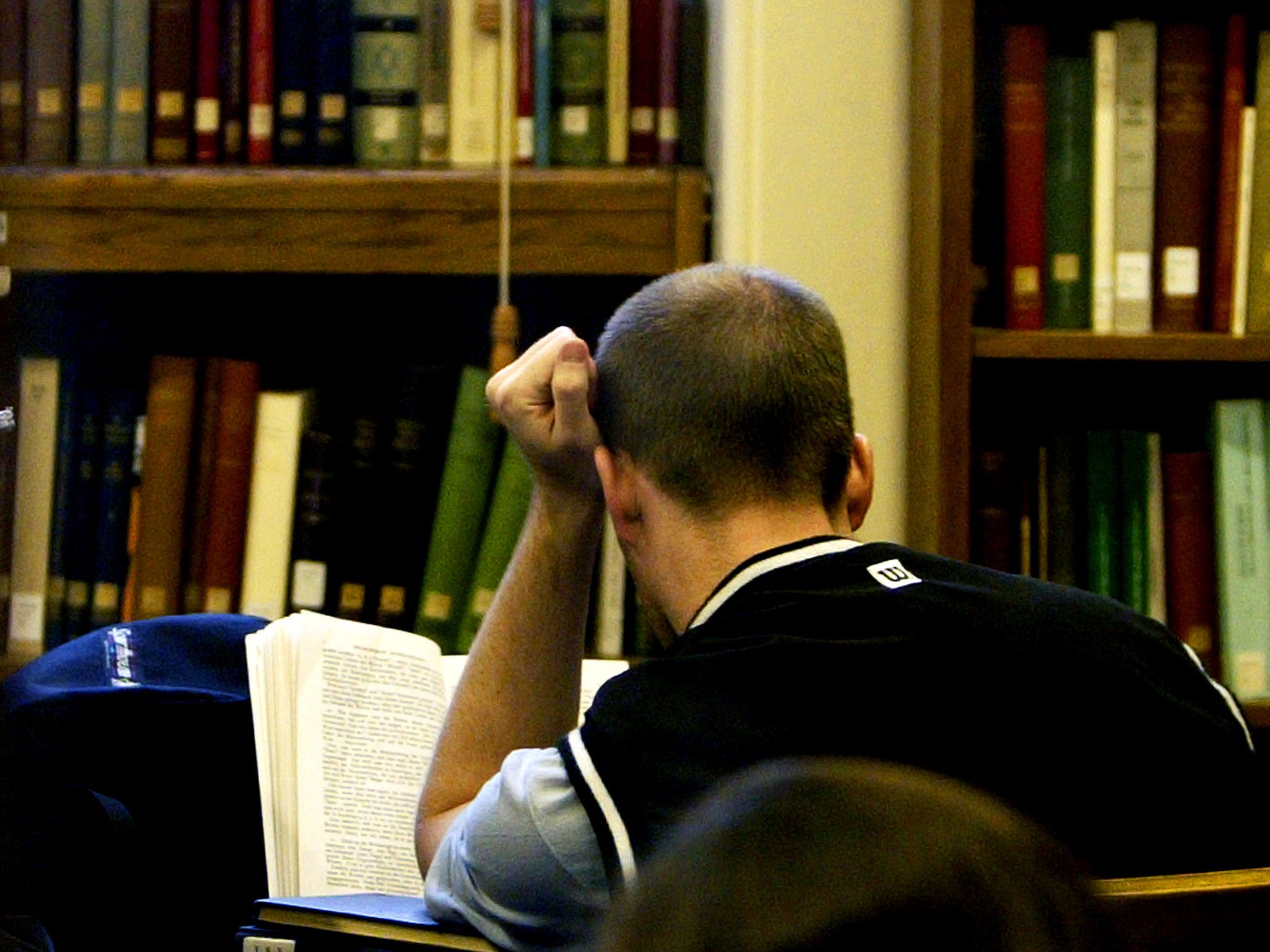Arts graduates should stop worrying. Britain – and the jobs market – needs you
Education is not wholly and solely about finding employment

Your support helps us to tell the story
From reproductive rights to climate change to Big Tech, The Independent is on the ground when the story is developing. Whether it's investigating the financials of Elon Musk's pro-Trump PAC or producing our latest documentary, 'The A Word', which shines a light on the American women fighting for reproductive rights, we know how important it is to parse out the facts from the messaging.
At such a critical moment in US history, we need reporters on the ground. Your donation allows us to keep sending journalists to speak to both sides of the story.
The Independent is trusted by Americans across the entire political spectrum. And unlike many other quality news outlets, we choose not to lock Americans out of our reporting and analysis with paywalls. We believe quality journalism should be available to everyone, paid for by those who can afford it.
Your support makes all the difference.There are three things to be said about the Higher Education Statistics Agency (HESA) figures showing that 18,000 graduates are unemployed six months after leaving university, and that arts and humanities graduates are more likely to take menial jobs after graduation than are science graduates.
The first and simplest thing to note is that 300,000 people graduate from British universities each year. That puts a bit of perspective on the 18,000 figure of the HESA report, which – moreover – applies just to the situation for this small minority by the Christmas following the summer in which they graduate. A spot of maths tells us that, on these figures, 94 per cent of graduates have a job before the Christmas of their graduating year. This is not how the news is presented, though; that would be too much of a good story, would it not.
Secondly, the fact that a number of arts and humanities graduates take ‘menial’ jobs (‘office juniors, bartenders’) upon leaving university ignores the fact that these are stop-gaps while the graduates look around them, think about their next steps, and get warmed up for life in a workplace. Quite a few are putting some money together so that they can travel a bit more before settling down to a career. When this is what is happening, it reflects maturity and seriousness, not any supposed uselessness of their studies.
Thirdly, education is not wholly and solely about getting a job, still less about getting a job instantly upon graduating, as if – as the HESA report is taken to imply – this latter were the real measure of an education’s success. No: education is for much more than getting a wage. It is for life. Aristotle said, ‘We educate ourselves so that we can make a noble use of our leisure,’ an opinion that would be very surprising for people with today's relentlessly banausic outlook. But remember that people are neighbours, voters, lovers, friends, parents, travellers, and much besides, in addition to being earners. Do we want a civilised society, a thoughtful electorate, a mature and tolerant community? Then let us be educated. Let us know history, read literature, engage in philosophical discussion about what matters in life; in short, let us study the humanities.
READ NEXT: IN DEFENCE OF THE HUMANITIES
How will HESA measure the benefits to individuals and societies of the unquantifiable added value of these results of education? So long as people measure everything in terms of money alone, the result will be a distorted view: in Oscar Wilde’s words, they will know "the cost of everything and the value of nothing."
And yet it remains that university graduates will on average earn up to a million pounds more over a working lifetime than a non-graduate, even if it takes them longer than six months to begin doing so.
Join our commenting forum
Join thought-provoking conversations, follow other Independent readers and see their replies
Comments